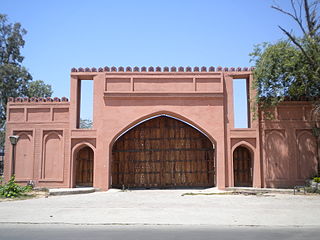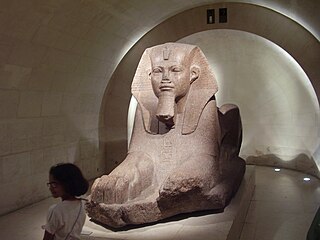
Training is teaching, or developing in oneself or others, any skills and knowledge or fitness that relate to specific useful competencies. Training has specific goals of improving one's capability, capacity, productivity and performance. It forms the core of apprenticeships and provides the backbone of content at institutes of technology. In addition to the basic training required for a trade, occupation or profession, training may continue beyond initial competence to maintain, upgrade and update skills throughout working life. People within some professions and occupations may refer to this sort of training as professional development. Training also refers to the development of physical fitness related to a specific competence, such as sport, martial arts, military applications and some other occupations.

Experimental theatre, inspired largely by Wagner's concept of Gesamtkunstwerk, began in Western theatre in the late 19th century with Alfred Jarry and his Ubu plays as a rejection of both the age in particular and, in general, the dominant ways of writing and producing plays. The term has shifted over time as the mainstream theatre world has adopted many forms that were once considered radical.
The British Mirpuri community comprises people in the United Kingdom who originate from the Mirpur District and surrounding areas in Pakistan-administered Azad Jammu and Kashmir, thus being a part of the Mirpuri diaspora. While no accurate statistics are available, an estimated 60 to 70 per cent of British Pakistanis in England trace their origins to the administrative territory of Azad Kashmir in northeastern Pakistan, mainly from the Mirpur, Kotli and Bhimber districts.
The Dogras or Dogra people, are an Indo-Aryan ethno-linguistic group living primarily in the Indian union territory of Jammu and Kashmir and neighbouring Pakistan, consisting of the Dogri language speakers. They live predominantly in the Jammu region of Jammu and Kashmir, and in adjoining areas of Punjab and Himachal Pradesh. Some also live in northeastern Pakistan. Their historical homeland is known as Duggar.
Subversion refers to a process by which the values and principles of a system in place are contradicted or reversed in an attempt to sabotage the established social order and its structures of power, authority, tradition, hierarchy, and social norms. Subversion can be described as an attack on the public morale and, "the will to resist intervention are the products of combined political and social or class loyalties which are usually attached to national symbols. Following penetration, and parallel with the forced disintegration of political and social institutions of the state, these tendencies may be detached and transferred to the political or ideological cause of the aggressor".
Awan is a Punjabi Muslim tribe and surname originating from the Punjab region of Pakistan. Awans are predominantly present in the northern, central, and western parts of Punjab, with significant population also present in Khyber Pakhtunkhwa, Azad Kashmir, and to a lesser extent, in Sindh and Balochistan.
Theatre in Pakistan has been developed and influenced by the traditional and ritual Persian theatre as well as the classical Indian dance practices of the Mughal Empire. As an Islamic state, the production of plays and theatrical performances in the past was not condoned in the country for religious reasons that is why this performing art did not have the opportunity to develop and flourish. The concept of Pakistani theater as a national heritage could only be traced back to modern plays due to the absence of any classical theatrical tradition while folk literature has also been largely obscured except the performances of the Bhand.

Punjabi dances are an array of folk and religious dances of the Punjabi people indigenous to the Punjab region, straddling the border of India and Pakistan. The style of Punjabi dances ranges from very high energy to slow and reserved, and there are specific styles for men and women.

Alam Lohar was a prominent Pakistani Punjabi folk music singer.

The Sipah-e-Sahaba (SS), also known as the Millat-e-Islamiyya (MI), is a Anti-Shia Sunni Islamist banned Deobandi organisation in Pakistan. Founded by Pakistani cleric Haq Nawaz Jhangvi in 1989 after breaking away from Sunni Deobandi party Jamiat Ulema-e-Islam (F), it was based in Jhang, Punjab, but had offices in all of Pakistan's provinces and territories. It operated as a federal and provincial political party until it was banned and outlawed as a terrorist organization by Pakistani president Pervez Musharraf in 2002. Even though it has been banned by the Pakistani government on numerous occasions, the Sipah-e-Sahaba has continued to operate under a different name throughout the country; it has significant underground support in Punjab and Khyber Pakhtunkhwa. The organization was also banned by the United Kingdom, where there is a significant Pakistani diaspora population, in 2001.

Heritage Museum, also known as Lok Virsa Museum, is a museum administered and managed by Lok Virsa - National Institute of Folk & Traditional Heritage.

Strengthening Participatory Organization is the largest rights-based national support organization in Pakistan working since 1994 to strengthen and support community organizations and public interest institutions for promotion of democratic governance, social justice, peace and social harmony. SPO engages civil society networks, faith-based organisations and groups representing a wide range of stakeholders.

Cultural sensitivity, also referred to as cross-cultural sensitivity or cultural awareness, is the knowledge, awareness, and acceptance of other cultures and others' cultural identities. It is related to cultural competence, and is sometimes regarded as the precursor to the achievement of cultural competence, but is a more commonly used term. On the individual level, cultural sensitivity is a state of mind regarding interactions with those different from oneself. Cultural sensitivity enables travelers, workers, and others to successfully navigate interactions with a culture other than their own.
Honour killings in Pakistan are known locally as karo-kari. According to the Human Rights Commission of Pakistan, over 470 cases of honour killings were reported in Pakistan in 2021. But human rights defenders estimate that around 1,000 women are murdered in the name of honour every year. An honour killing is the murder of a member of a family or social group by other members, due to the belief the victim has brought dishonour upon the family or community. The death of the victim is viewed as a way to restore the reputation and honour of the family.

Heritage commodification is the process by which cultural themes and expressions come to be evaluated primarily in terms of their exchange value, specifically within the context of cultural tourism. These cultural expressions and aspects of heritage become "cultural goods," transformed into commodities to be bought, sold and profited from in the heritage tourism industry. In the context of modern globalization, complex and often contradictory layers of meaning are produced in local societies, and the marketing of one's cultural expressions can degrade a particular culture while simultaneously assisting in its integration into the global economy. The repatriation of profits, or "leakage", that occurs with the influx of tourist capital into a heritage tourist site is a crucial part of any sustainable development that can be considered beneficial to local communities. Modern heritage tourism reproduces an economic dynamic that is dependent upon capital from tourists and corporations in creating sustained viability. Tourism is often directly tied to economic development, so many populations see globalization as providing increased access to vital medical services and important commodities.
Lahore, being the richest cultural city in Pakistan, celebrates a number of festivals throughout the year. It is known for the festivals of Basant and Mela Chiraghan, but many others are celebrated in the metropolis as well.
Punjabi festivals are various festive celebrations observed by Punjabis in Pakistan, India and the diaspora Punjabi community found worldwide. The Punjabis are a diverse group of people from different religious background that affects the festivals they observe. According to a 2007 estimate, the total population of Punjabi Muslims is about 90 million, with 97% of Punjabis who live in Pakistan following Islam, in contrast to the remaining 30 million Punjabi Sikhs and Punjabi Hindus who predominantly live in India.
Musicians Without Borders (MWB) is an umbrella organization working with local organizations and musicians to bring social change and peaceful, liveable conditions to their own communities. It was founded in 1999 by Laura Hassler, an American peace activist and musician. From their projects and programs, MWB has developed its training program, sharing skills and knowledge with musicians around the world, in support of their continuing work in their local communities.
Women's rights in Jammu and Kashmir is a major issue. Belonging to a patriarchal society, they have had to fight inequality and routine discrimination. Since the onset of insurgency in 1988, rape has been leveraged as a popular 'weapon of war' by Indian security forces. Separatist militants have also committed rapes, which remain under-researched but are not comparable in scale to that of the Indian state forces. Women's rights in Kashmir Valley has major issues as there is harassment of young muslim women participating in sports activities, demands of dowry after marriage, domestic violence incidents, acid attacks on women, and men being generally taken in a higher regard than women. Many small organisations have been formed to struggle for women's rights in Jammu and Kashmir.
Huma Safdar is a teacher, theatre artist, Punjabi language activist and director of feminist theatre “Sangat”. As an artist, she worked with Punjab Lok Rahs. She has taught as art and Punjabi language teacher in Lahore Grammar School. She has contributed a lot to promote Punjabi theatre, literature and folklore.









